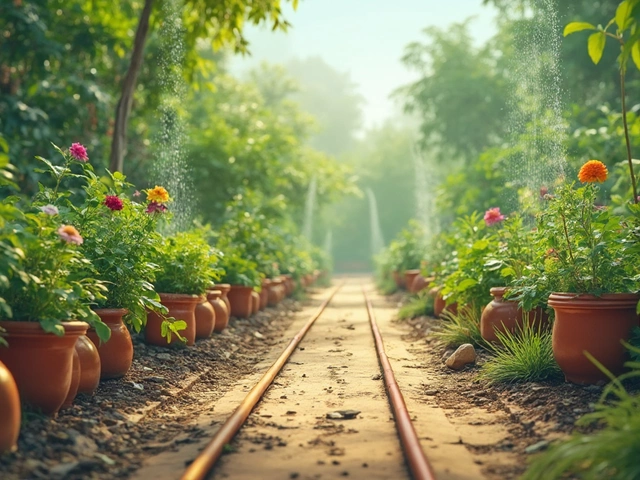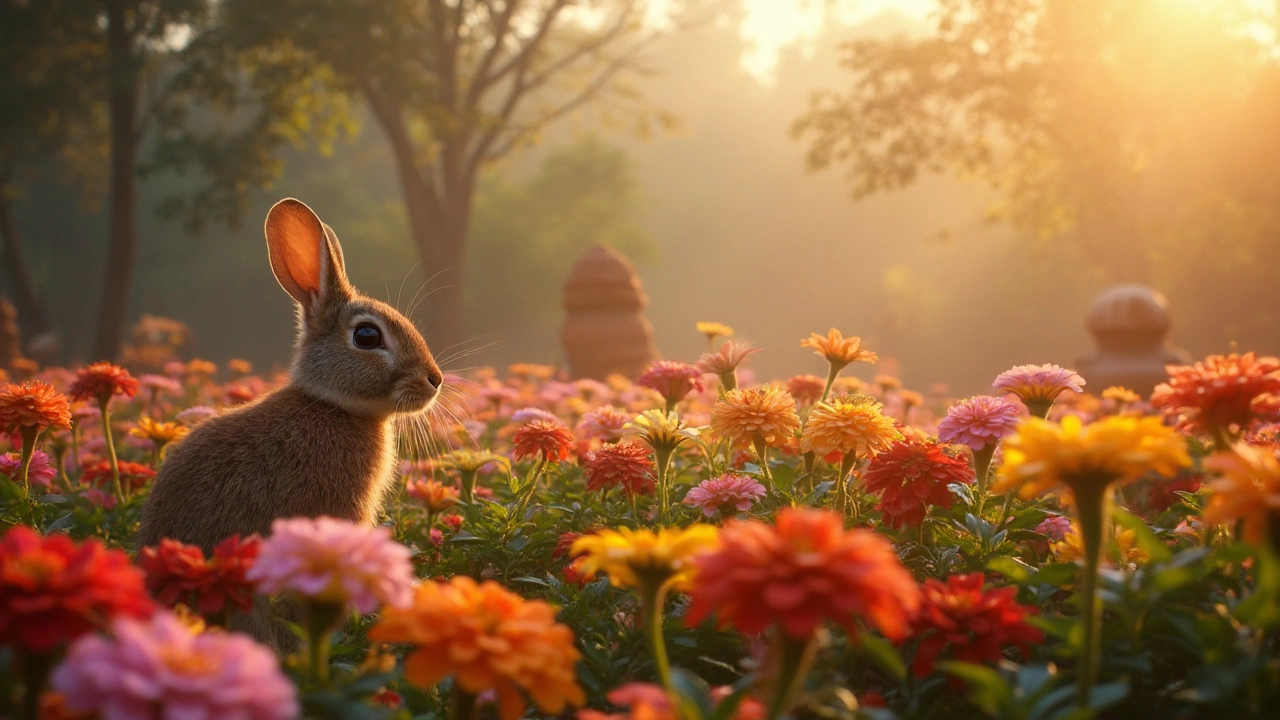Rabbits in the Garden: What You Need to Know
Rabbits are common visitors in Indian gardens. They love fresh leaves, soft stems, and any green bite they can find. That makes them a nuisance for many growers, but they also bring some hidden benefits. Understanding why they show up and how they behave helps you decide whether to keep them away or work with them.
Why Rabbits Love Your Garden
First, rabbits are attracted to young, tender growth. Seedlings, lettuce, carrots, and herbs are all on their menu. They also like the shelter that dense planting offers, especially during the hot summer months. A garden with plenty of cover gives them safety from predators and a place to hide at night.
Second, soil health plays a role. Healthy soil supports lush plants, which in turn attracts hungry rabbits. In many parts of India, rabbit populations rise after the monsoon because the ground stays soft and food is abundant.
Simple Ways to Keep Rabbits From Eating Your Plants
Start with physical barriers. A cheap garden fence made of chicken wire (mesh size 1 inch or smaller) works well. Bury the bottom 6‑8 inches of the fence to stop rabbits from digging underneath. For small beds, wrap the perimeter with a loop of hardware cloth and secure it with stakes.
Next, use repellents that are safe for plants. Homemade sprays made from garlic, hot pepper, or crushed eggs can deter rabbits for a few weeks. Spray the mixture on leaves and repeat after rain. Remember to test on a small leaf first to avoid any discoloration.
Plant rabbit‑resistant crops around the edges of your garden. Plants like marigold, lavender, rosemary, and garlic have strong smells that most rabbits avoid. Use these as a natural buffer zone so the animals have to go through an unpleasant scent before reaching your prized veggies.
If you prefer to welcome rabbits, provide a dedicated feeding area away from your main beds. Offer hay, carrots, or leafy greens in a separate spot. This can keep them satisfied and reduce the damage to ornamental or food plants.
Lastly, keep the garden tidy. Remove any fallen fruit, dead leaves, or weeds that could give rabbits extra cover. Regular pruning reduces hiding spots and makes it easier to spot any unwanted visitors early.
By combining fences, smart planting, and occasional repellents, you can protect your garden without spending a fortune. And if you decide to let rabbits stay, a small feeding zone can turn a pest into a friendly neighbor.
Remember, rabbits are part of the local ecosystem. Managing them responsibly not only saves your crops but also supports biodiversity in your garden.
Will Rabbits Eat Zinnias in Your Garden?
Rabbits can cause havoc in a garden, and if you're growing zinnias, you might wonder if these beautiful blooms are at risk. Though zinnias aren't the first choice for rabbits, they're not entirely safe either. Understanding how to prevent rabbit munching can save your flowers. This article offers insights and practical tips for protecting your zinnia garden from these fuzzy critters.
About
Kitchen Gardening
Latest Posts


Best Additions to Loosen Up Garden Soil
By Alden Thorne Feb 24, 2025

Make a Large Yard Feel Cozy: Terrace Gardening Tips That Work
By Alden Thorne Jun 17, 2025

Furnishing Your Terrace: Tips and Tricks for a Green Escape
By Alden Thorne Mar 2, 2025

